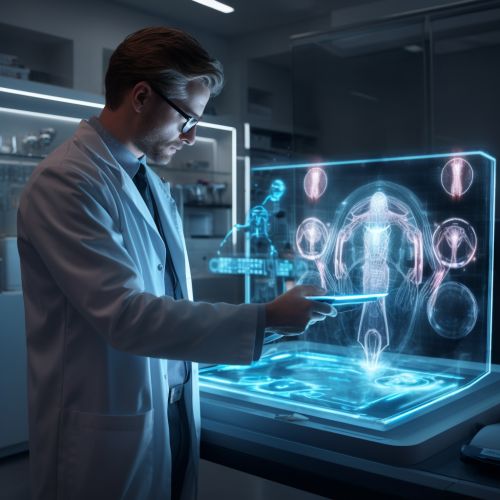The Role of Artificial Intelligence in Precision Medicine
Introduction
Artificial Intelligence (AI) has emerged as a transformative technology in various fields, including medicine. In the realm of precision medicine, AI plays a pivotal role in enhancing the accuracy, efficiency, and personalization of healthcare. This article delves into the role of AI in precision medicine, shedding light on its applications, benefits, challenges, and future prospects.
Artificial Intelligence and Precision Medicine: An Overview
Artificial Intelligence refers to the simulation of human intelligence processes by machines, especially computer systems. These processes include learning, reasoning, problem-solving, perception, and language understanding. On the other hand, precision medicine is an approach to patient care that allows doctors to select treatments most likely to help patients based on a genetic understanding of their disease.
The convergence of AI and precision medicine has opened up new avenues for personalized healthcare. AI algorithms can analyze vast amounts of data to identify patterns and make predictions, which can be used to tailor medical treatments to individual patients.
Applications of AI in Precision Medicine
AI has a wide range of applications in precision medicine, from diagnostics to treatment selection and monitoring.
Disease Diagnosis and Prognosis
AI algorithms, particularly machine learning and deep learning, can analyze medical images, genomic data, and electronic health records to diagnose diseases and predict their progression. For instance, AI can be used to identify genetic mutations associated with specific diseases, enabling early and accurate diagnosis.
Treatment Selection
AI can analyze a patient's genetic profile and disease characteristics to recommend the most effective treatment. This approach minimizes trial-and-error in treatment selection, reducing side effects and improving patient outcomes.
Drug Discovery and Development
AI can expedite the process of drug discovery and development by predicting the efficacy and safety of potential drugs based on their chemical structures and biological targets. This application of AI can significantly reduce the time and cost of bringing new drugs to market.
Healthcare Delivery
AI can enhance healthcare delivery by predicting patient needs and optimizing resource allocation. For example, AI can predict hospital readmissions and emergency department visits, enabling healthcare providers to intervene proactively and improve patient care.
Benefits of AI in Precision Medicine
The integration of AI into precision medicine offers several benefits.
Improved Accuracy
AI algorithms can analyze complex and large-scale data with high accuracy. This capability enhances the accuracy of disease diagnosis and prognosis, as well as treatment selection.
Increased Efficiency
AI can automate routine tasks, such as data analysis and report generation, freeing up healthcare professionals to focus on patient care. This automation increases the efficiency of healthcare delivery.
Personalized Care
AI enables the personalization of healthcare by tailoring diagnosis and treatment to individual patients. This personalization improves patient outcomes and enhances patient satisfaction.
Cost Savings
By improving accuracy and efficiency, and reducing trial-and-error in treatment selection, AI can generate significant cost savings in healthcare.
Challenges in the Implementation of AI in Precision Medicine
Despite its benefits, the implementation of AI in precision medicine faces several challenges.
Data Privacy and Security
The use of AI in precision medicine involves the analysis of sensitive patient data, raising concerns about data privacy and security. Ensuring the confidentiality and integrity of patient data is a major challenge in the implementation of AI in precision medicine.
Algorithmic Bias
AI algorithms can exhibit bias if they are trained on biased data. This bias can lead to inaccurate or unfair outcomes in disease diagnosis and treatment.
Regulatory Compliance
The use of AI in precision medicine must comply with various regulations, such as the Health Insurance Portability and Accountability Act (HIPAA) and the General Data Protection Regulation (GDPR). Ensuring regulatory compliance is a significant challenge in the implementation of AI in precision medicine.
Future Prospects
The future of AI in precision medicine looks promising. With advancements in AI technology and genomics, AI is expected to play an increasingly important role in precision medicine. However, addressing the challenges in the implementation of AI in precision medicine is crucial to realizing its full potential.


